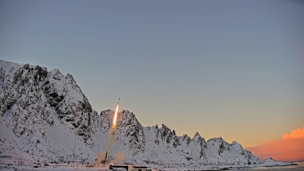America’s newest military branch still has some maturing to do to earn the respect and support of the public and the nation’s adversaries, according to analysts.
The Center for a New American Security (CNAS) released a report that weighs the challenges in the developing culture of the still-budding US Space Force and suggests steps that could be taken to improve it.
“At its birth, the Space Force inherited a passionate cadre of military space professionals and world-class space assets,” the report states. “It also inherited a bureaucracy, mature 21st-century adversaries, and the pressure to quickly become a world-class military force.”
A cultural problem: In the first three years after its foundation, the Space Force reportedly struggled to develop a real sense of self. The culture set forth in its founding documents—one that values “agility, innovation, and a warfighting spirit”—is understood differently both amongst Guardians and servicemembers in other branches.
That doesn’t even get into the perception problem in the American public. Many people are still unaware that USSF exists, and it’s still the punchline of a joke to many that do. The report’s author suggests that this is a comms problem. How is the public going to understand and support the goals of the force if it doesn’t understand A) what they are, or B) their importance to national security?
Growing pains: To address the cultural challenges faced by the branch, the report suggests a handful of specific improvements:
- Clarify the MO of the service by developing a strong internal narrative about why it exists and how it operates
- Lower classification barriers on programs where possible to enable more external communication about the work USSF is doing
- Keep up constant communication with the public about space’s military history and the potential for conflict in the space domain for awareness
- Avoid any sci-fi association like the plague




